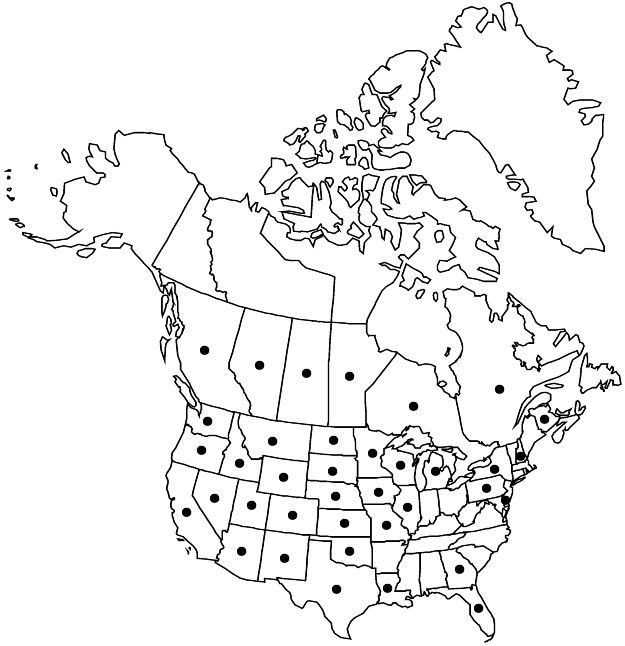Euphorbia serpillifolia subsp. serpillifolia
Stems glabrous. Leaves: petiole and blade glabrous. Involucre glabrous. Pistillate flowers: ovary glabrous. Capsules glabrous.
Phenology: Flowering and fruiting year-round in response to sufficient moisture (but mostly summer–fall).
Habitat: Pine forests, cottonwood-willow riparian forests, temperate deciduous forests, chaparral, grasslands, Joshua tree woodlands, desert scrub, juniper-sagebrush scrub, disturbed areas.
Elevation: 0–2600 m.
Distribution

Pine forests, cottonwood-willow riparian forests, temperate deciduous forests, chaparral, grasslands, Joshua tree woodlands, desert scrub, juniper-sagebrush scrub, disturbed areas, Alta., B.C., Man., N.B., Ont., Que., Sask., Ariz., Calif., Colo., Fla., Ga., Idaho, Ill., Iowa, Mich., Minn., Mo., Mont., Nebr., Nev., N.H., N.Mex., N.Y., N.Dak., Okla., Oreg., Pa., S.Dak., Tex., Utah, Wash., Wis., Wyo., Mexico, South America.
Discussion
Subspecies serpillifolia is likely native to the central-western United States and Canada, and it may be disjunct in northern Argentina. It appears to be adventive in eastern Canada and possibly other northern and eastern parts of its range. A report of the species from Cameron Parish, Louisiana, was based on a misidentified specimen of E. glyptosperma.
Selected References
None.